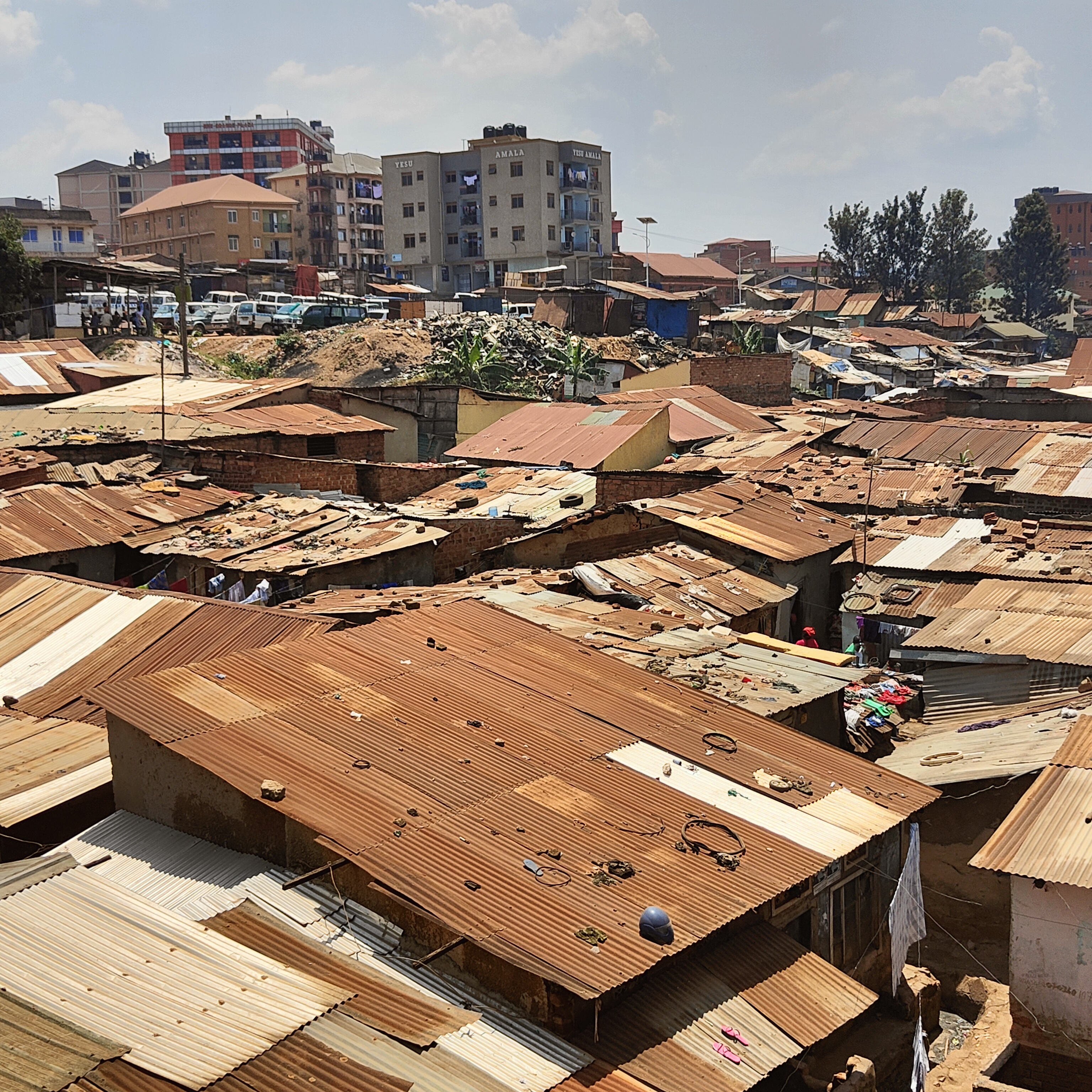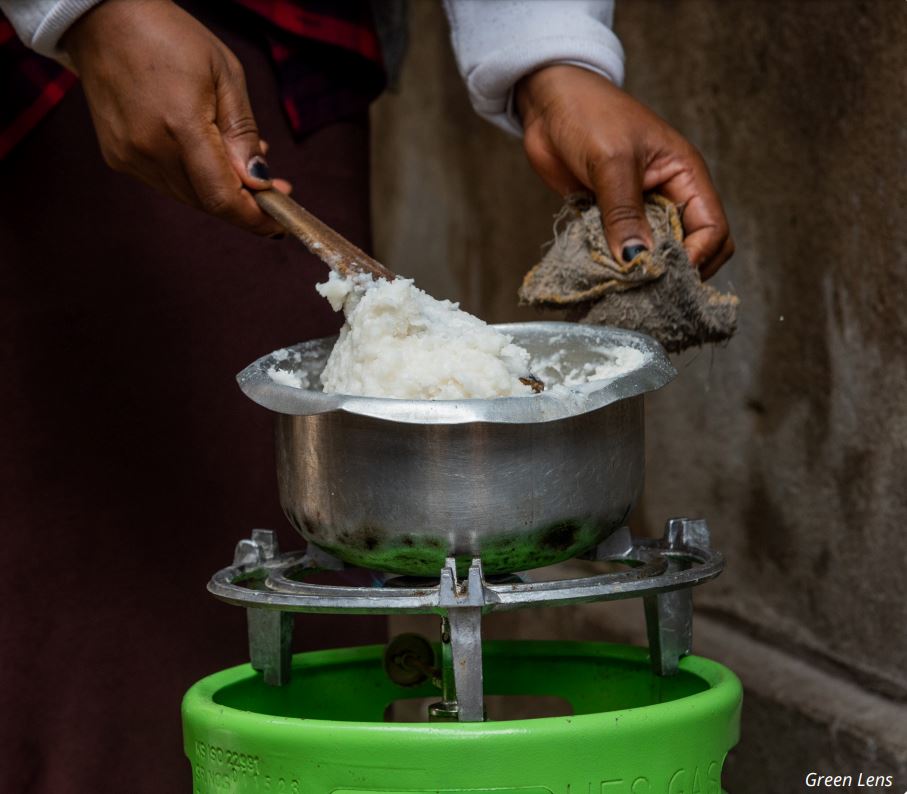Why urban informal settlements need clean cooking solutions now
For the millions living in Africa’s urban informal settlements, cooking a meal carries consequences far beyond the kitchen. Traditional cooking methods — particularly inefficient stoves that burn charcoal — harm the environment, place a heavy financial burden on households, and expose families to hazardous indoor air pollution. In places like Kisenyi, the largest informal settlement in Kampala, Uganda, such practices are rife and their long-term repercussions have become all too clear: chronic health conditions and economic hardship that keeps households trapped in poverty.
These challenges are compounded by the rapid urbanisation sweeping the continent. Over 60% —approximately 360 million people— now live in informal settlements, where overcrowding, inadequate infrastructure, and limited access to basic services, such as clean water, sanitation and energy, are a daily norm. Rapid urban growth intensifies these issues, straining already limited resources and making it even harder for residents to access much-needed services, achieve economic stability, and improve their quality of life.
It is within this context that the need for targeted approaches to make clean cooking solutions available and affordable for low-income urban communities like Kisenyi is more urgent than ever. This is why we’re proud to implement the Enabling African Cities for Transformative Energy Access (ENACT) project alongside ICLEI Africa. Funded by the UK government through the Transforming Energy Access platform, ENACT has expanded access to clean cooking technologies for households and micro-enterprises in urban informal settlements in Freetown (Sierra Leone) as well as Kampala, piloting scalable models that can be adapted to similar urban areas and replicated across the continent.
The need is undeniable. More than 80% of households in informal settlements rely on charcoal —an unsustainable fuel source that accelerates deforestation and contributes to high levels of carbon emissions. Beyond the environmental toll, cooking with charcoal imposes a severe financial strain amid skyrocketing local prices, forcing families to spend a substantial portion of their incomes on fuel. The health impacts are even more devastating, as smoke inhalation from open fires and inefficient stoves leads to respiratory illnesses, disproportionately affecting women and children who typically spend more time at home.
In Kisenyi, ENACT is addressing these challenges through robust multi-sectoral collaborations and public-private partnerships. Local companies like Wana Solutions and Green Bio Energy, along with key government authorities such as the Ministry of Energy and Mineral Development (MEMD) and the Kampala Kapital City Authority (KCCA), are central to the project’s approach. These partnerships combine expertise, resources, and deep local knowledge to drive transformative change in some of the most challenging urban contexts, ensuring that clean cooking solutions are effectively tailored to community needs.
Appointed and supported by ENACT, Wana Solutions and Green Bio Energy are delivering a range of clean cooking options that are not just cleaner—more cost-effective, safer, and faster, they are designed to meet the cooking needs and financial capacities of local users. These options include LPG stoves, electric pressure cookers, improved cookstoves, and briquettes, made accessible to users through payment methods tailored to their preferences and financial habits. A survey conducted by ENACT in June 2024, including households and small businesses, provided crucial insights into community needs and preferences, such as demand for flexible payment models like cash payments and in-house credit options. By adapting their approach to meet the diverse needs of Kisenyi’s residents, the companies are addressing both practical and cultural barriers to change.
As clean cooking solutions are rolled out across Kisenyi, the impact is already evident. The use of traditional metallic stoves has dropped to 30%, while improved cookstoves have gained popularity among 28% of households. LPG stoves and electric pressure cookers now account for 15% and 11% of usage, respectively.
The key to this shift lies not only in the technologies themselves but in the community-focused approach that drives their adoption. Community ambassadors, appointed for their familiarity with the residents and their needs, have been instrumental in building trust and spreading awareness, helping to overcome initial resistance and misconceptions about the safety of new cooking technologies.
The community has experienced significant benefits according to the survey: over half of the respondents reported time savings and faster cooking processes, improved air quality with smoke-free kitchens, and economic relief due to reduced fuel costs. An impressive 99% feel safer, and the same percentage expressed a commitment to continue using clean cooking technologies. Overall satisfaction was remarkably high, with nearly all respondents indicating that they are either very satisfied or satisfied, and 88% of them expressed a desire to acquire additional clean cooking technologies. This growing interest signals a robust community appetite for innovation when it manifestly improves their lives.
But this is only the beginning. The experience in Kisenyi underscores the need for more initiatives like ENACT that target urban informal settlements. Clean cooking solutions are not just an energy issue—they are a matter of public health, economic resilience, and environmental sustainability. For communities already struggling against scarcity and adversity, the benefits of transitioning to clean cooking are transformative: lower costs, improved health, and a better quality of life.
As an implementing partner in the ENACT project, we strongly believe that addressing the clean cooking gap in urban informal settlements must be a priority for policymakers, donors, and local governments alike. The success we are seeing in Kisenyi proves that with the right technologies, financing options, community engagement, and government support, it is possible to bring clean, affordable, and sustainable cooking solutions to Africa’s most underserved urban areas. Expanding these efforts will not only improve lives but also help cities meet their sustainability goals, reduce emissions, and create more resilient communities.
For a continent with a burgeoning urban population, the question is not whether clean cooking solutions are necessary—they are. The question is how quickly we can scale up efforts to ensure that millions of families living in urban informal settlements can access the clean, safe, and affordable energy they deserve.
For a deeper dive into the tangible outcomes of this initiative, the case study Transforming Urban Cooking: The ENACT Project's Impact in Kisenyi Informal Settlement, Kampala, Uganda is available on ICLEI Africa's website.


